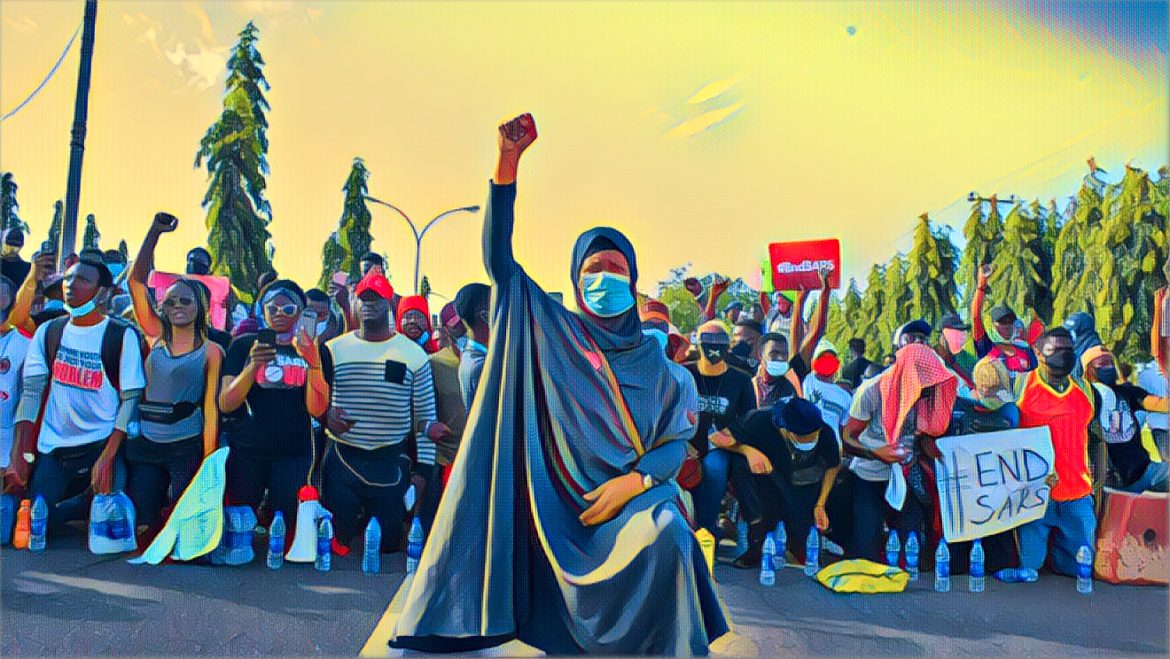Over the years, the socio-political scene in Nigeria has been punctuated by protests, strikes, and civil unrest, serving as testaments to the nation’s long-standing tradition of resistance and demand for justice. However, in the midst of these public outcries, there’s an undercurrent of change—a subtle yet potent evolution of activism theories that’s reshaping how Nigerians engage in socio-political discourse and action.
Historically, Nigerian activism has often manifested as a response to oppression. From the colonial era’s resistance against British rule to the struggle against military dictatorships, Nigerians have long been engaged in collective action. However, the nature and philosophy of this action are undergoing a significant transformation.
The Traditional Theories
Traditionally, Nigerian activism revolved around mass mobilization and physical presence. Protests and demonstrations, often leading to confrontations with law enforcement or military officials, were seen as the most potent ways to demand change. This is exemplified by the June 12, 1993, pro-democracy protests and the Niger Delta agitation against environmental degradation.
Moreover, activism was often centralized, with charismatic leaders or strong unions leading the charge. Their narratives dominated the discourse, and their strategies defined the direction of the movement.
Digital Age, Diverse Voices
With the advent of the internet and the proliferation of social media platforms, the landscape began to shift. These digital tools democratized activism, giving a voice to the previously unheard and a platform to the marginalized. No longer were movements solely dependent on central figures; instead, decentralized groups could mobilize quickly, share information, and coordinate strategies.
The 2020 EndSARS protests, against police brutality and the disbandment of the notorious Special Anti-Robbery Squad, serve as a hallmark of this digital-age activism. Here, Nigerians from all walks of life, both within the country and in the diaspora, unified their voices online. Hashtags became rallying cries, and social media amplified demands for justice and accountability on a global scale.
INTERSECTIONAL ACTIVISM
Another significant evolution is the rise of intersectional activism, which acknowledges the overlapping social identities and the ways in which they interact with systems of oppression. Nigerian activism is increasingly recognizing the unique challenges faced by different groups, such as women, the LGBTQ+ community, and ethnic minorities.
Movements like the Feminist Coalition, which played a pivotal role during the EndSARS protests, emphasize the importance of considering gender dynamics in activism. By doing so, they shed light on issues like gender-based violence and institutional sexism, further enriching the broader socio-political discourse.
FROM REACTION TO PROACTION
A noticeable shift in Nigerian activism is the move from reactive to proactive strategies. While earlier movements often arose as direct responses to particular incidents or oppressive policies, contemporary activism seeks to preemptively address root causes and build more resilient structures for the future.
Groups are now engaging more in community building, educational initiatives, and policy advocacy, aiming to foster a society where the need for protests is minimized. This proactive approach is evident in organizations like the BudgIT Foundation, which focuses on promoting fiscal transparency and citizen engagement to ensure more accountable governance.
Challenges and The Road Ahead
Despite these evolutionary strides, challenges persist. The Nigerian government’s stance on digital activism remains restrictive, with threats of internet shutdowns and surveillance on activists. Moreover, while the rise of decentralized movements allows for a diversity of voices, it sometimes leads to a lack of clear direction or strategy.
Yet, the resilience and adaptability of Nigerian activists provide hope. As these theories continue to evolve, they’re bound to refine their strategies, ensuring that the fight for justice, accountability, and an inclusive Nigeria remains vibrant and effective.
In the heart of this evolutionary journey, the essence remains unchanged: a tireless quest for a Nigeria where every citizen’s rights are recognized, upheld, and championed. With the tools of digital age activism, intersectionality, and proactive strategies, Nigerians are better equipped than ever to shape their nation’s destiny.


